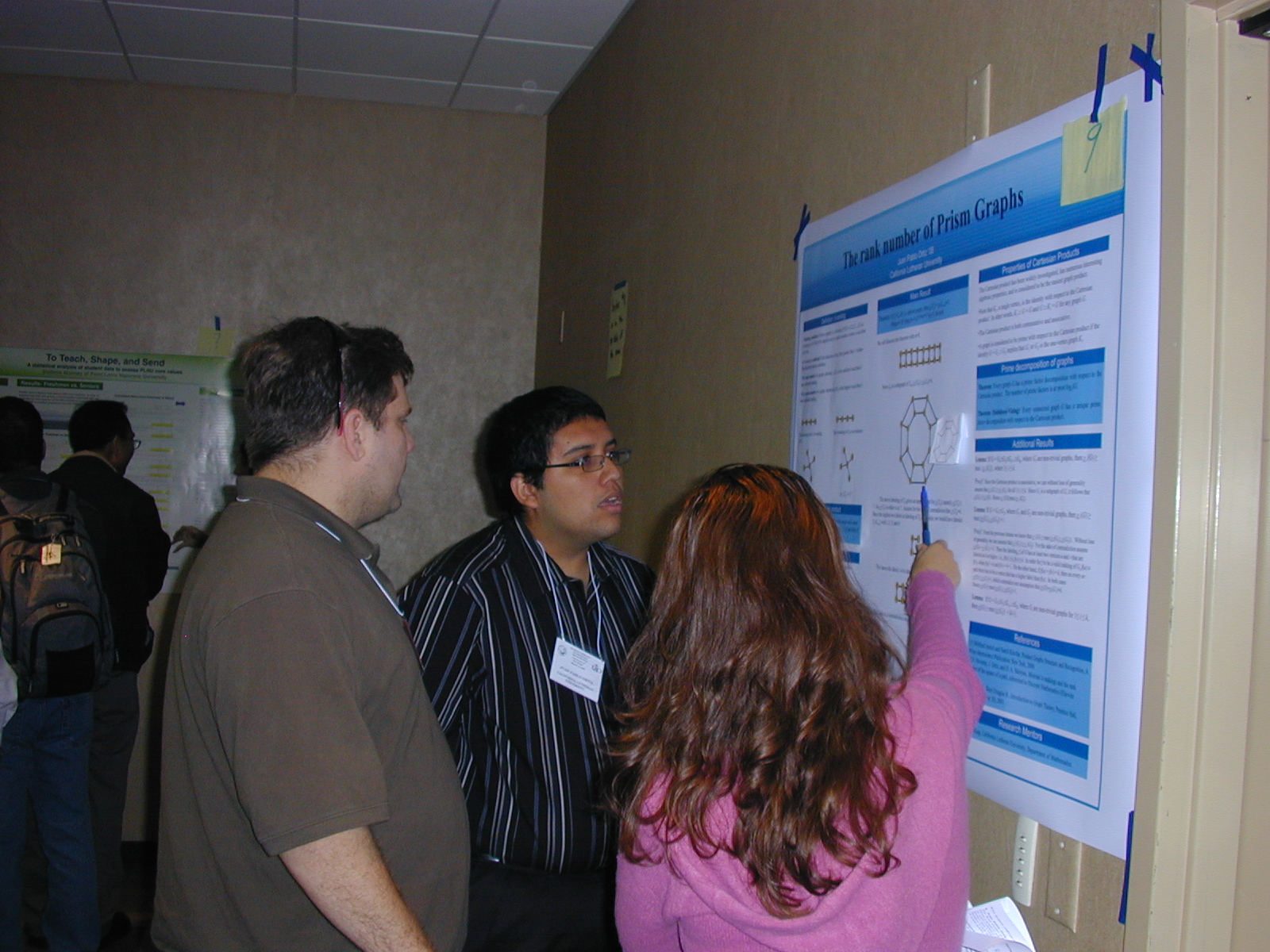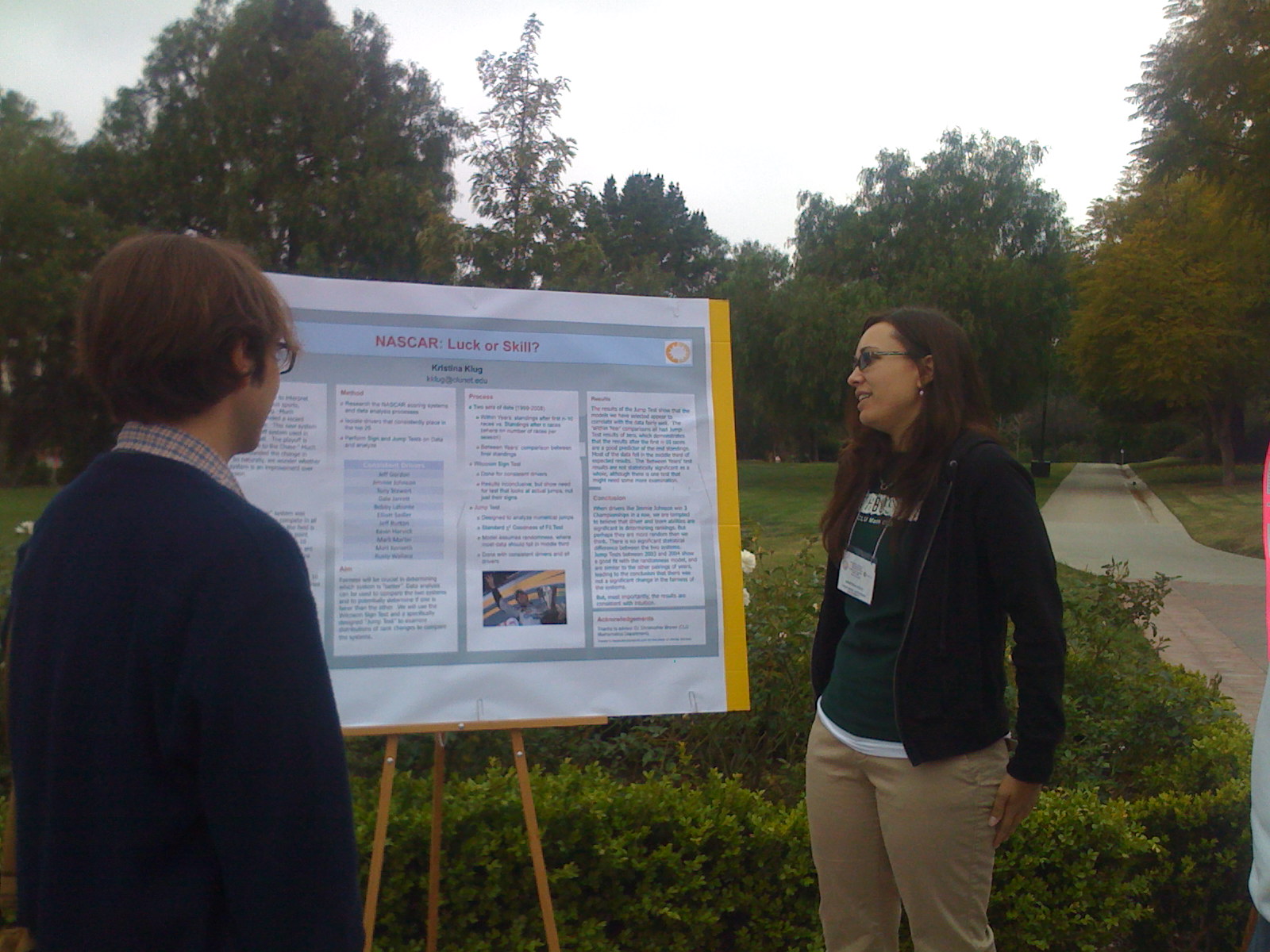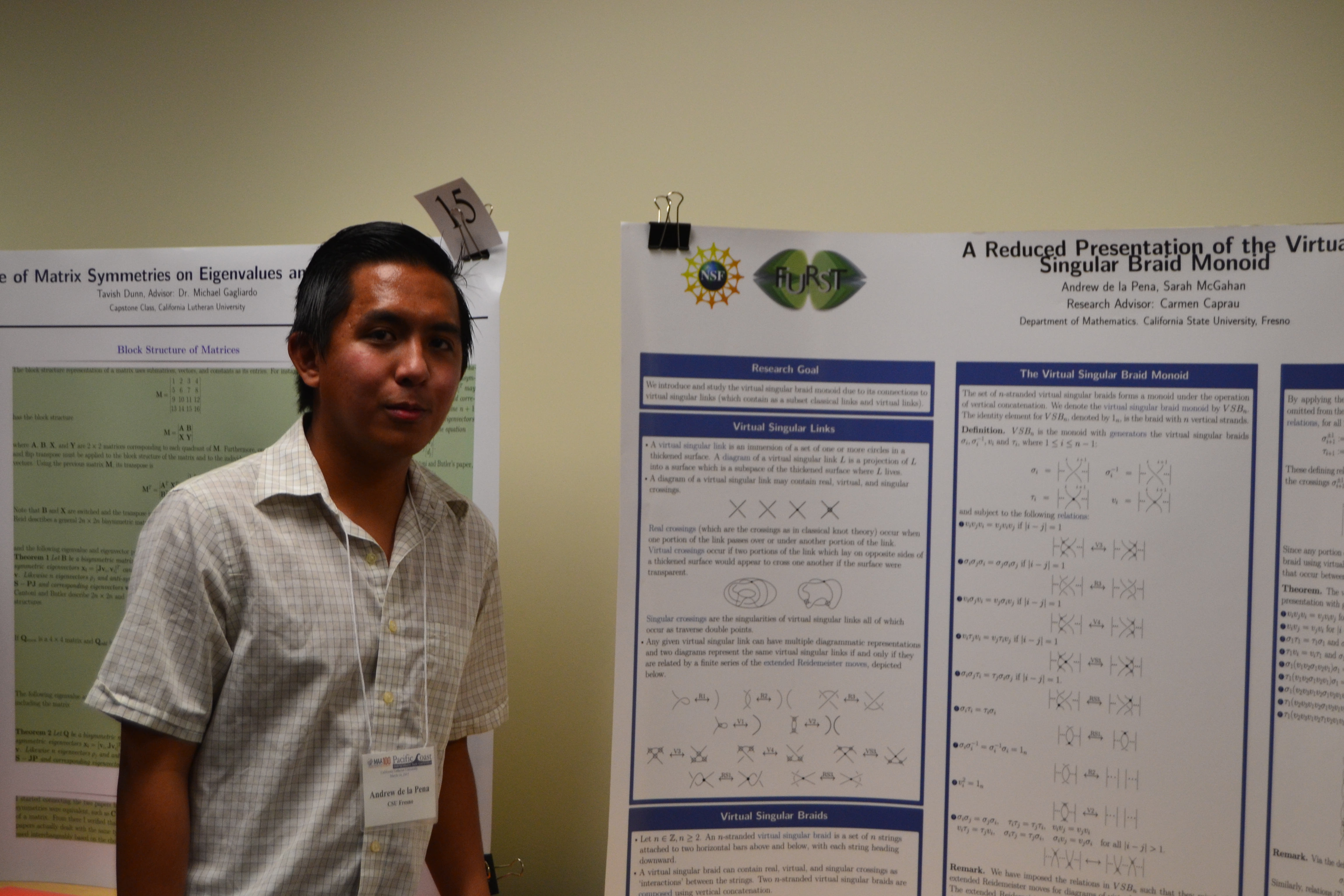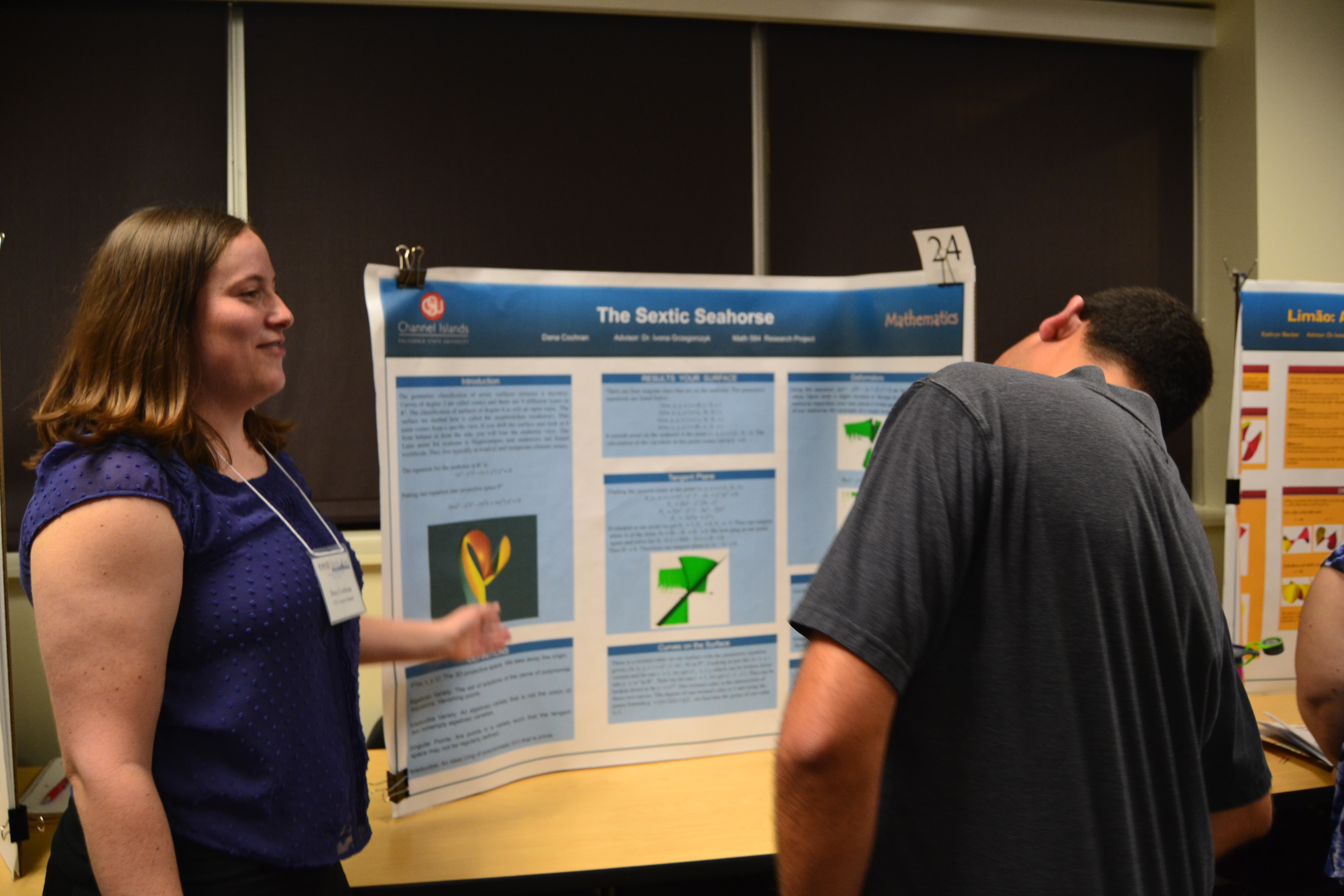Register
Register before 5pm PDT on Thursday April 8, 2021.
Registration is free and grants access to the link for participating in the conference.
Spring 2021 SoCal-Nev (Virtual) Section Meeting
Online with ZOOM
Hosted by Riverside City College
Saturday, April 10, 2021, 9:45am-4:30pm
Tentative Schedule
- 9:35 am: Zoom session opens. Please see email sent to registred participants on Fri 4/9/21 for meeting id and password.
- 9:45am-9:55am Welcome Remarks
- 8:00-10:00 Poster Presenter check-in
- 10:00-11:00 Invited Address by Rob Rubalcaba, San Diego City Collge
Pathways to invite, include, encourage, engage and retain Underrepresented Minorities and Women in Mathematics and Science - 11:10-12:10 Student Poster Session
View the Call for Posters and apply on-line
Organized by Ryan DeMoss, California Lutheran University
- 12:15-12:45 Lunch Break
- 12:50-1:50 Invited Address by Hiram Lopez, Cleveland State University, and Gretchen Matthews, Virgina Tech
Polynomial LoRE: Local Recovery of Erasures - 2:00-2:20
Section Business Meeting
- 2:25-3:25 Invited Address by Jayadev Athreya, Univ. of Washington
Counting Tripods - 3:35 -3:50 Association for Women in Mathematics Session
Organized by Shanna Dobson, California State University Los Angeles - 3:55-4:30 Poster Awards and Closing Remarks
Registration Information
Register online before 5pm PDT on Thursday April 8, 2021.
Registration is free and conducted via google forms. It grants access to the link for participating in the conference. On Friday April 9, the conference link/details will be emailed to the email address given in the registration . Please check your junk/spam folder if you do not receive the email.
If you are a student and are presenting a poster (poster application deadline is April 2 at 12noon), you need to also complete the conference registration.
There will be no registration on the day of the conference.
Jayadev AthreyaUniversity of Washington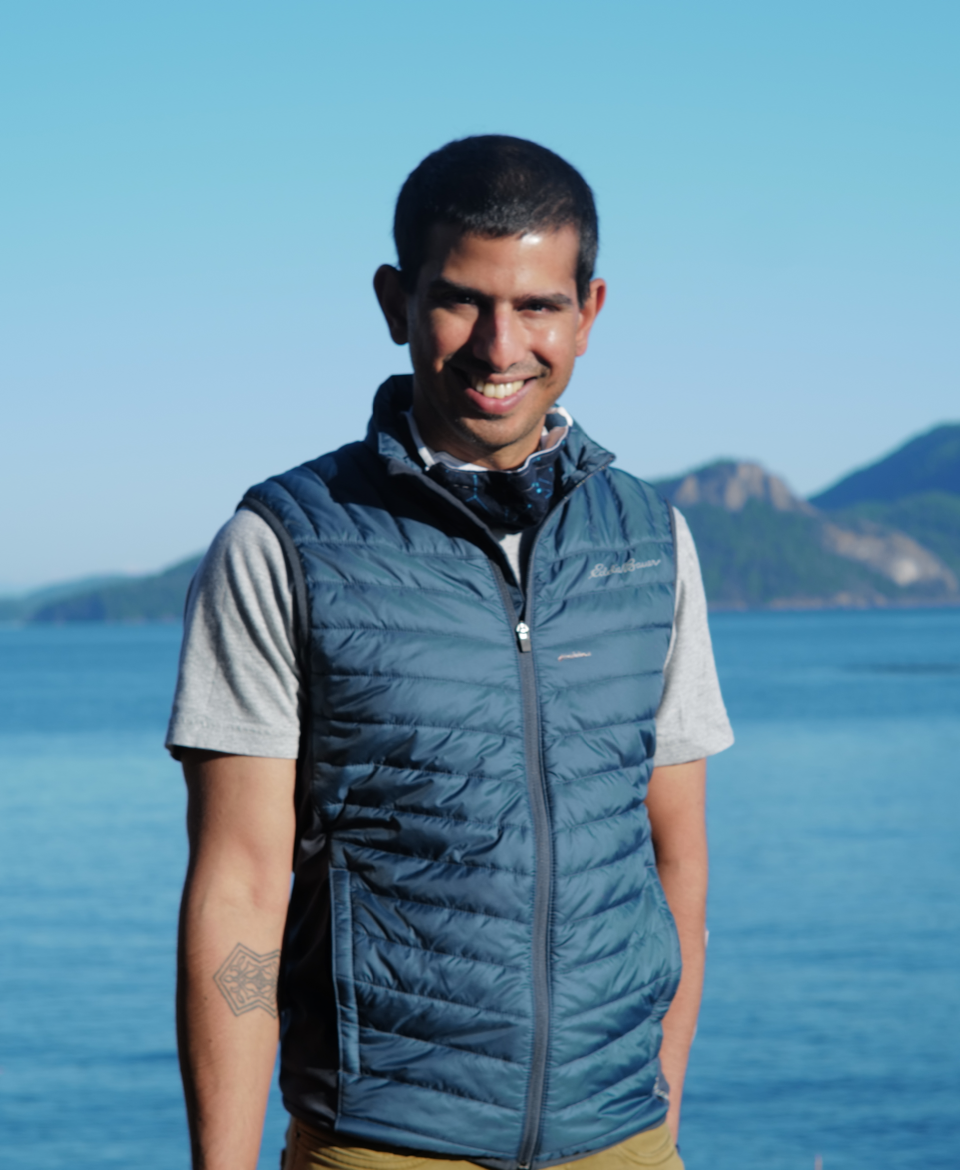 |
Jayadev Athreya is a Professor of Mathematics and the Comparative History of Ideas at the University of Washington, and the founder of the Washington Experimental Mathematics Lab. He is originally from Iowa. He graduated from Iowa State University, did his PhD at the University of Chicago, postdoctoral fellowships at Yale and Princeton, and was previously at the University of Illinois. He has held visiting positions in the UK, France, and in India. He is interested in geometry, dynamical systems, the creative processes of mathematics, and in comparisons to the creation of art. |
Counting Tripods
Motivated by some problems from theoretical physics, we describe a toy model problem of counting isometric immersions of certain graphs in the flat torus. This is joint work with David Aulicino and Harry Richman. There will be lots of pictures, and hopefully, some discussion of the motivations.
Hiram LopezCleveland State Univ. andGretchen MatthewsVirgina Tech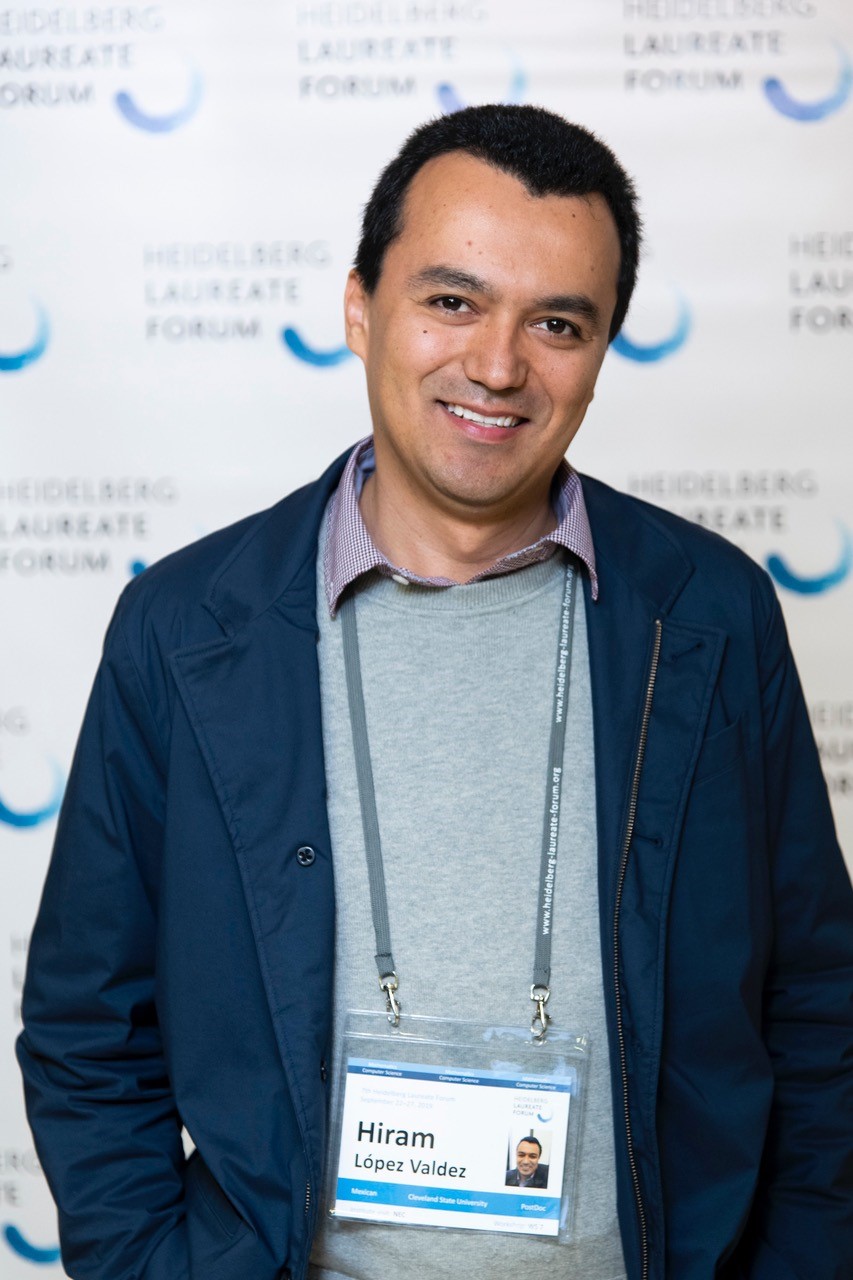 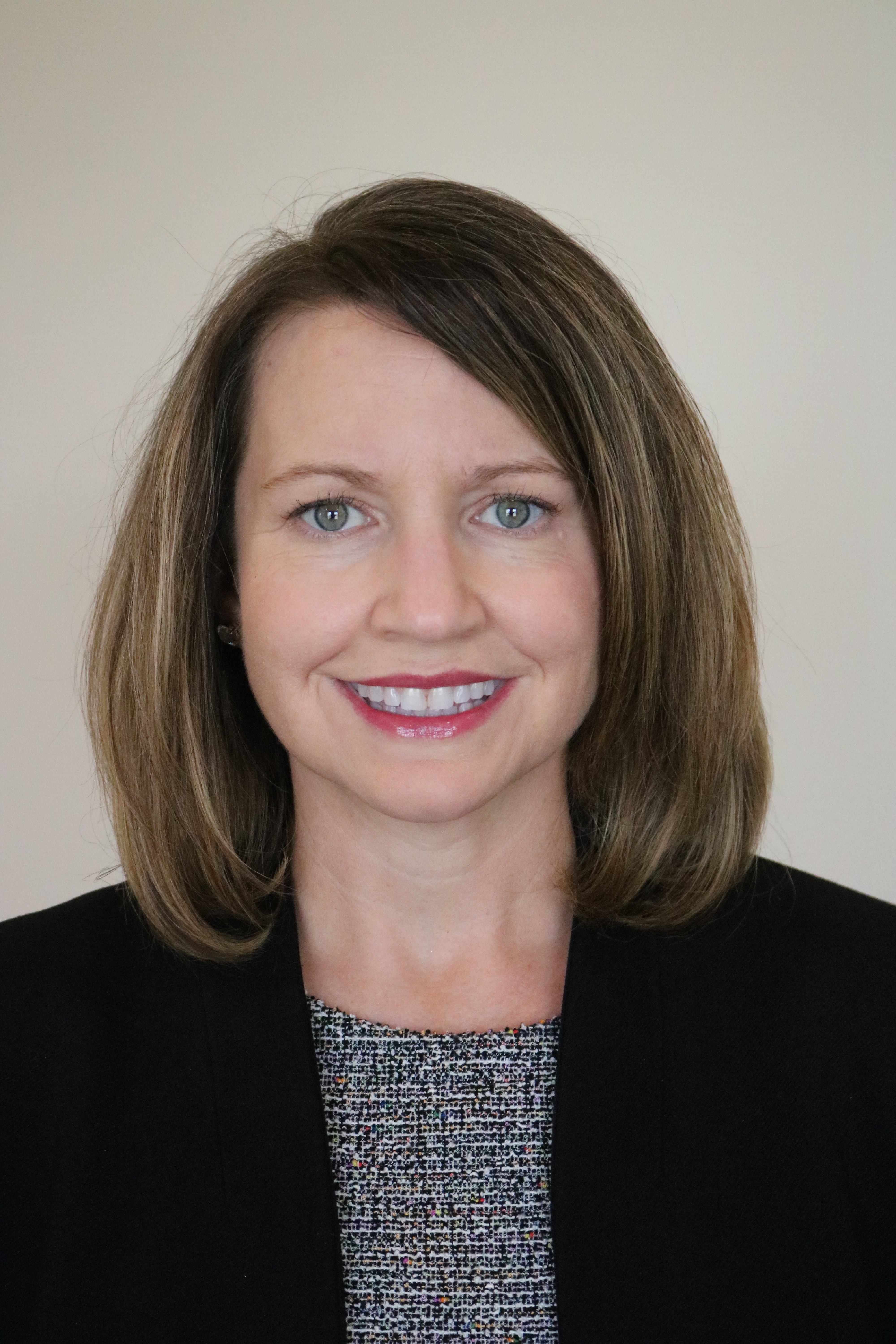 |
Hiram H. López is an Assistant Professor in the Department of Mathematics and Statistics at Cleveland State University. He earned the B.S. degree in applied mathematics from the Autonomous University of Aguascalientes, Mexico, in 2008. He got a PhD in mathematics from CINVESTAV-IPN, Mexico, in 2016. After a postdoctoral position at Clemson University from 2016 to 2018 he joined Cleveland State University in 2019. His research interests include coding theory, commutative algebraic and image processing. Gretchen L. Matthews is a Professor of Mathematics at Virginia Tech and Director of the Commonwealth Cyber Initiative Southwest Virginia. She is affiliated faculty with Virginia Tech’s Hume Center for National Security & Technology and Computational Modeling & Data Analytics program. Her research is in applied algebra, with a focus on coding theory and cryptography and applications in data storage, protection, and privacy. She is an AWM Fellow, in recognition of her efforts to broaden participation in mathematics. She earned a BS from Oklahoma State University and a PhD from Louisiana State University, both in Mathematics. She spent time as a postdoc at University of Tennessee and on the faculty at Clemson University before joining Virginia Tech in 2018.
|
Polynomial LoRE: Local Recovery of Erasures
Polynomials over finite fields have been employed to protect and transmit information in a variety of ways, starting with Reed-Solomon codes in the 1960s. Reed-Solomon codes are based on polynomials in a single variable and are responsible for the error-correction that powers CDs, DVDs, and QR codes, among many other behind-the-scenes uses. Generalizations included the famous Reed-Muller codes (which inspired polar codes behind 5G) and algebraic geometry codes. The data deluge of the past decade has prompted a new application. In this talk, we consider the use of polynomials and curves over finite fields in distributed storage. We will see how polynomials and points of intersection between curves and lines play a role in local recovery of information.
Rob RubalcabaSan Diego City College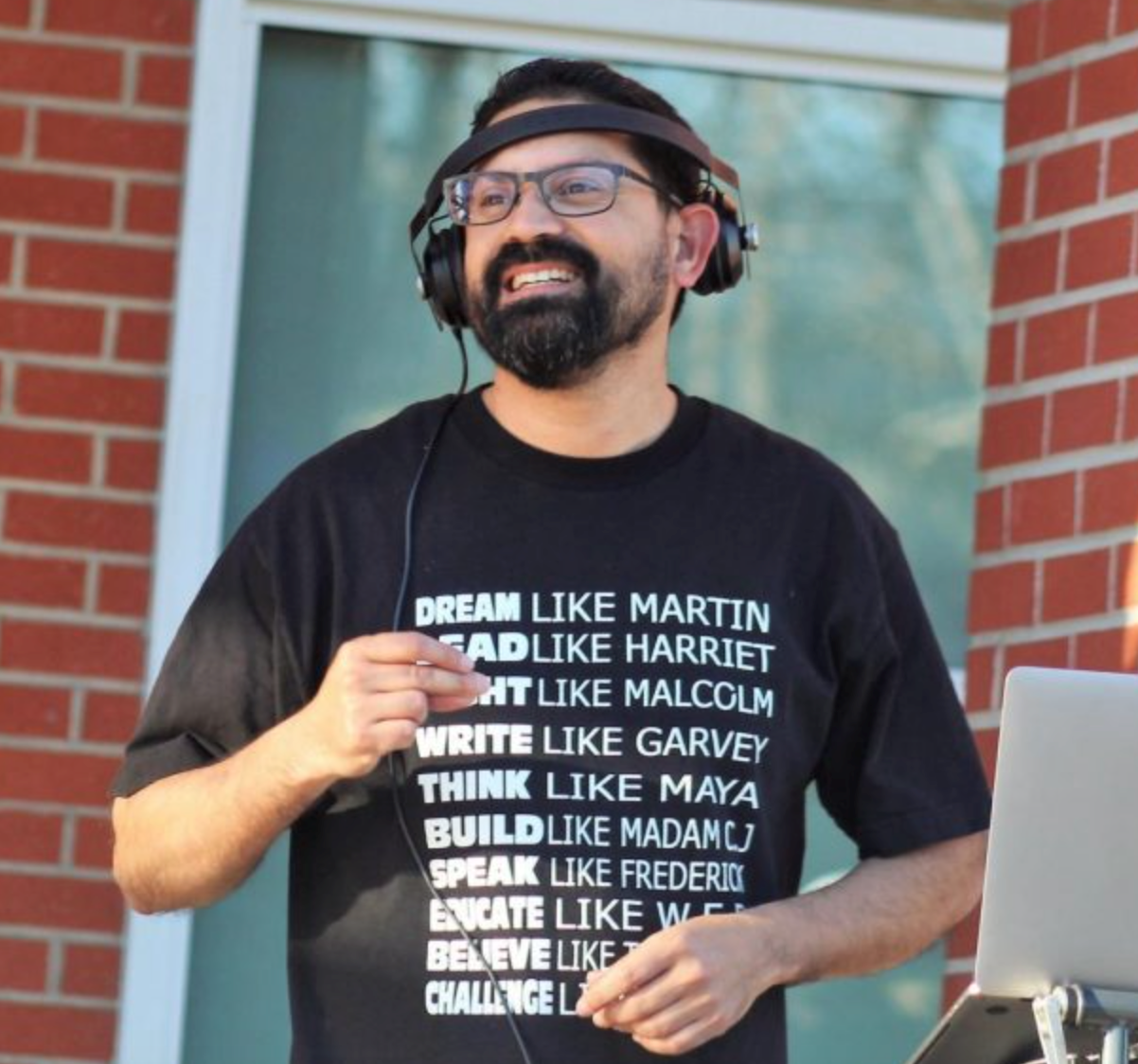 |
Dr. Rob Rubalcaba is an Associate Math Professor at San Diego City College. He was born in Lemon Grove, on Olive Street, next door to a where Lemon Grove Elementary planned to build a separate school to send all of the Latino students who were no longer welcome at Lemon Grove Elementary in 1931. He stopped going to Morse High in the 10th grade because of gang violence and he attended Centre City Adult School where he earned a GED, then attended City College majoring in Mathematics with only a 9th grade education in Math. He transferred to SDSU earning a BA in Mathematics. After SDSU, he started graduate school in Lee County Alabama at Auburn University earning a Masters and Ph.D. in Discrete Mathematics. Dr. Rob then worked with the Department of Defense working in secret facilities around the world before joining the Math Department at City College. He co-teaches in the UMOJA program and co-organizes campus wide Math and Writing Jams where hundreds of students build confidence before midterms and final exams. He is a professional DJ and sushi chef and teaches mathematics through hip hop, art, sushi, and dance. |
Pathways to invite, include, encourage, engage and retain Underrepresented Minorities and Women in Mathematics and Science
We will discuss how to invite, include, motivate, engage and retain Black / African American, Latinx / Chicanx, Indigenous, LGBTQ, Women, and Undocumented students in mathematics without requiring them to change their identity to learn. The time for being passive about the few underrepresented minorities and women thriving and majoring in mathematics in your department has passed - it is time for a serious intervention if you want to see real diversity in your students and faculty. We will discuss several proven interventions for student success including Math Jams, The Hesabu Circle, SACNAS, Upward Bound, as well as several equity minded practices. It is time to start being intentional and deliberate, a key Umoja practice (Umoja is a Kiswahili word meaning Unity), about student success in all levels of math at your college or university, and at the local high schools where your students come from which may have a lack of resources for both educators and their students based on their zip code, segregation, and racism. How many days, months, years, decades, or centuries must we wait until black lives truly matter in math and science? .
Student Poster Session
Students (undergraduate and graduate) are invited to submit short proposals for the Poster Session of the Spring 2021 Section Meeting of the MAA, taking place on Saturday, April 10 over Zoom (hosted by Riverside Community College).
Here are some ideas of what students can present:
- Results of masters thesis, honors, senior, or independent study projects
- Results of classroom projects or modeling contests
- Results of REUs or other summer research programs
- Historical investigations in pure or applied mathematics
- Solutions of problems from the Putnam Exam or from the Monthly or other journals
Applications to present in either the poster session are submitted online. Applications include submitting an abstract (max 150 words) and are be due by 12 noon on Friday April 2, 2021.
The application to submit a poster does not constitutes registration for the conference. All applicants should also register for the meeting through the online conference registration.
The Student Resources page of the MAA website has useful articles about writing an abstract and giving presentations. Be sure to check it out for helpful tips!
Direct questions to Ryan DeMoss
